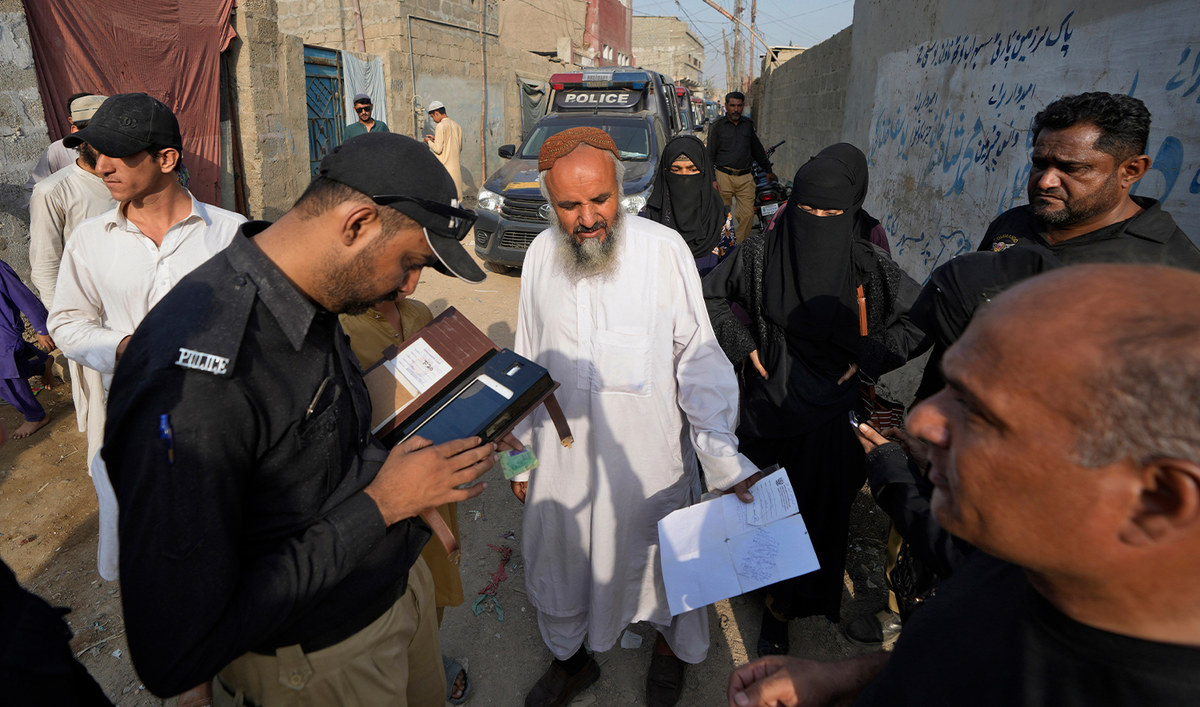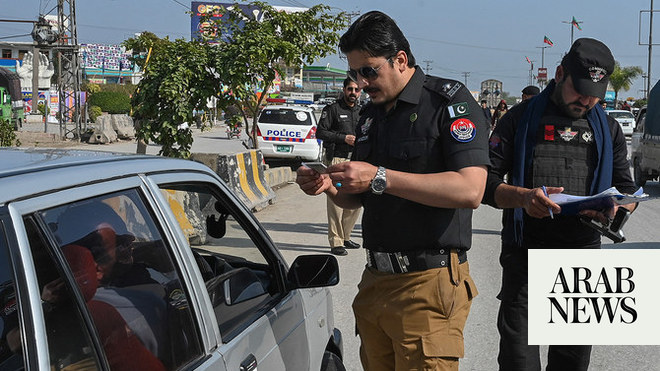Karachi, Pakistan: An 18-year-old boy born and raised in Pakistan to parents who defected from neighboring Afghanistan half a century ago was deported after Karachi police confiscated his cash, cell phone and motorcycle. . center.
Horrified and bewildered, he spent three days there before being sent back to Afghanistan, a country he had never been to, with only the clothes on his back.
The young man is one of at least 1.7 million Afghans who have made Pakistan their home as the country sinks into decades of war. But they are living there without legal permission, and Pakistan is currently subject to a harsh crackdown on migrants seeking eviction.
Some 600,000 Afghans have returned home since the crackdown began in October last year, with at least 1 million still hiding in Pakistan. They withdraw from public life, abandon their jobs and rarely leave their neighborhoods for fear of being deported next.
The risk of being arrested by police or reported to authorities by Pakistanis makes it difficult for them to earn money, rent accommodation, buy food and receive medical care.
The young man, who had worked as a mechanic at an auto shop since he was 15, spoke on condition of anonymity for fear of arrest and deportation.
He applied for the same documents his family had but was unable to obtain them. Pakistan does not issue documents to Afghan refugees or their children.
“My life is here. I have no friends, no family in Afghanistan, nothing,” the young man told The Associated Press. “I wanted to go back (to Pakistan) sooner, but first I needed to calm down the situation,” he said, referring to the anti-immigrant attacks that were spreading across Pakistan at the time.

A police officer checks the documents of residents during a search operation for illegal immigrants near Karachi, Pakistan, on November 3, 2023. (AP)
When he entered Afghanistan to start a new life, Taliban authorities gave him 2,500 Afghanis (about $34). They sent him to northeastern Takhar province, where he slept in a mosque and religious school because he had no one to stay with him. He spent his time playing cricket and football and borrowed other people’s phones to call his family.
Six weeks later, he left Takhar for the Afghan capital, Kabul, and then on to eastern Nangarhar province. He walked for hours in the dark, after which he met up with human smugglers hired by his brother in Pakistan. Their job was to take him to Peshawar, the capital of northwestern Pakistan’s Khyber Pakhtankhwa province, for $70.
He is relieved to be reunited with his family. But he is vulnerable.
Police painted numbers on the houses in his neighborhood to show how many people lived there and how many had papers. Hundreds of Afghan families have been evacuated from the area since the operation began. There are fewer people to hide from.
These areas of Karachi could easily be home to tens of thousands of Afghans. However, they lack drainage systems, medical care, and educational facilities. Few women walk the streets, and those who do go out wear burqas, many of them the blue burqas common in Afghanistan.
Lawyer Moniza Kakar, who works extensively with Karachi’s Afghan community, said there are generations of families without paperwork. Without this, they cannot access basic services such as schools and hospitals.
Afghans were already in the spotlight even before the crackdown, with rumors circulating that Pakistan wanted to expel all Afghans, even those with documents. Pakistan says no such decision has been taken.
In another predominantly Afghan district of Karachi, people scattered when police arrived, disappearing into a maze of alleyways. A network of informants spread news of the visit.
Kakar is in despair over the plight of Afghans remaining in Pakistan. “We are appealing to the United Nations to help them because sometimes they don’t have food,” she said. Previously, they would have traveled from such neighborhoods to the center of Karachi to earn money or seek medical care, but now they cannot afford such journeys. They too could be arrested, she added.
Some showed Kakar their ID cards from the time of military dictator General Zia ul-Haq, who ruled Pakistan at the same time as the Soviet Union invaded Afghanistan in 1979. “They wonder why they don’t have citizenship after 40 years. They don’t share their location. They don’t go out. They rent in someone else’s name. I live in real estate.”
There are children born in Pakistan who have grown up and had children of their own. “The children have no identity documents. The future of all of them is undetermined,” Kakar said.
Syed Habib Ur Rehman works as a media coordinator at the Afghan Consulate General in Karachi. He spends a lot of time in these communities.
“There are vacant houses and vacant stores,” Lehman said. “The market is empty. The Pakistanis we know do not agree with what is happening. They say they had a good life with us. So many Afghan families… Because they left, their business deteriorated.”
The Afghans interviewed by The Associated Press had a variety of reasons for not being able to secure their positions. Some said they were working overseas. Others didn’t have time. No one thought Pakistan would kick them out.
Mohammad Khan Mughal, 32, was born in Karachi and has three children. Before the crackdown began, Afghans ran tandoori businesses. The police told him to close the shop.
“My customers started complaining because they couldn’t buy bread from me,” he said. He and his family went to Quetta, a city in southwestern Baluchistan province, to escape the attack.
He returned to Karachi a few days later, but has no intention of leaving.
“This is my home,” he said with pride and sadness. “This is my city.”

